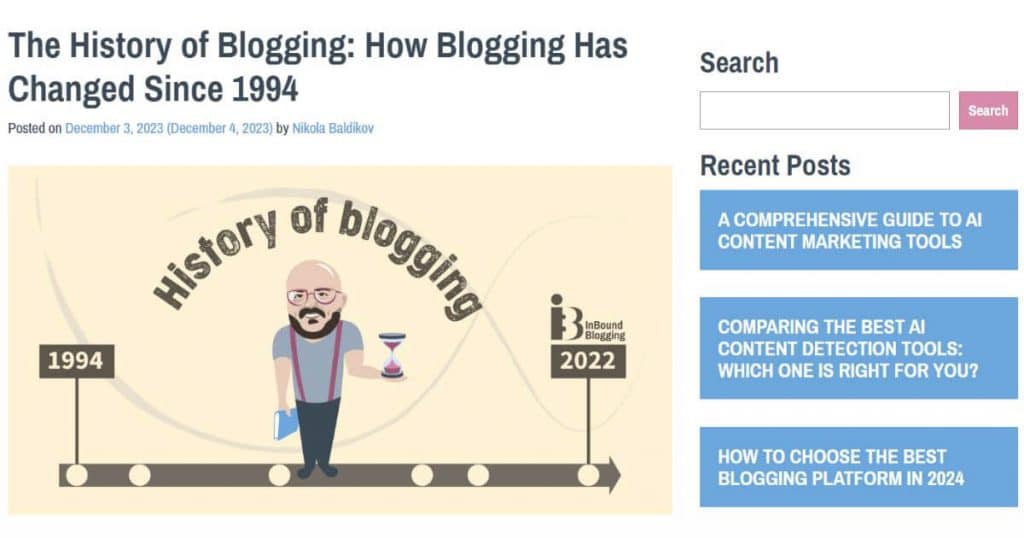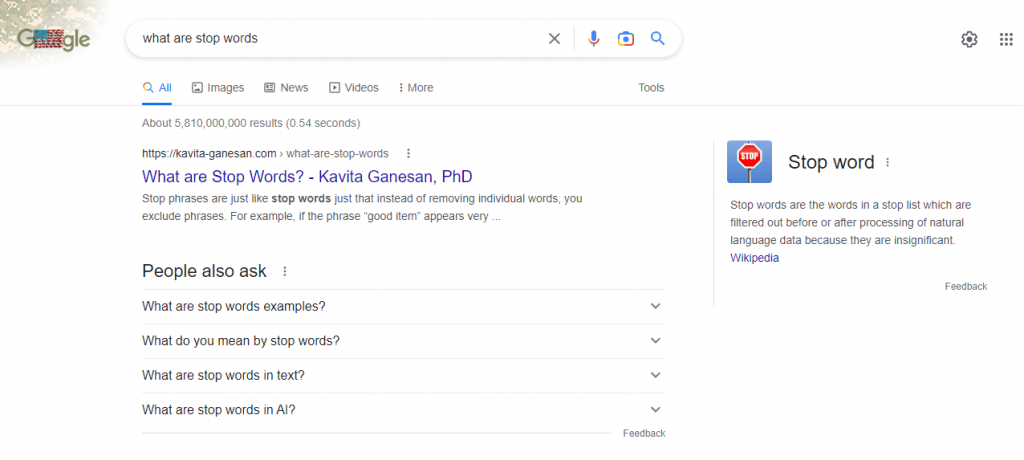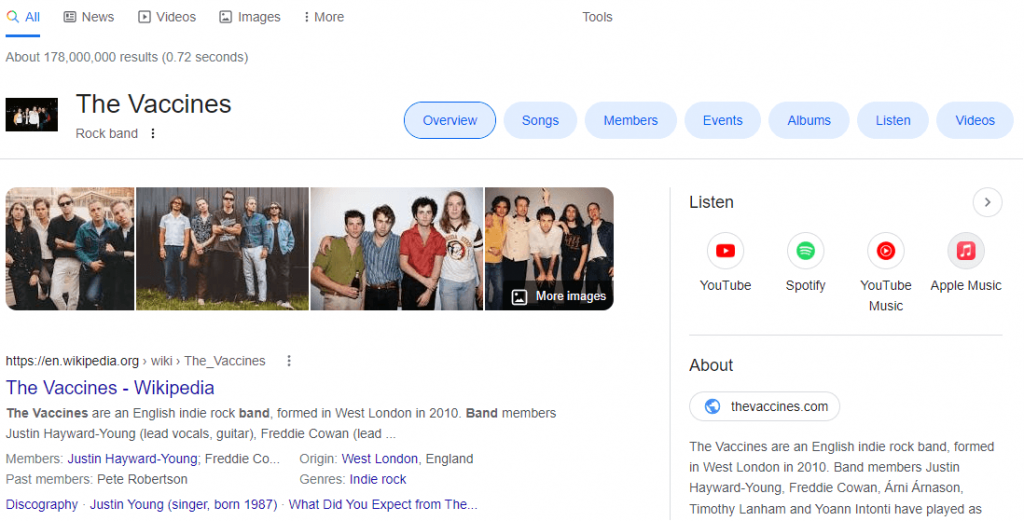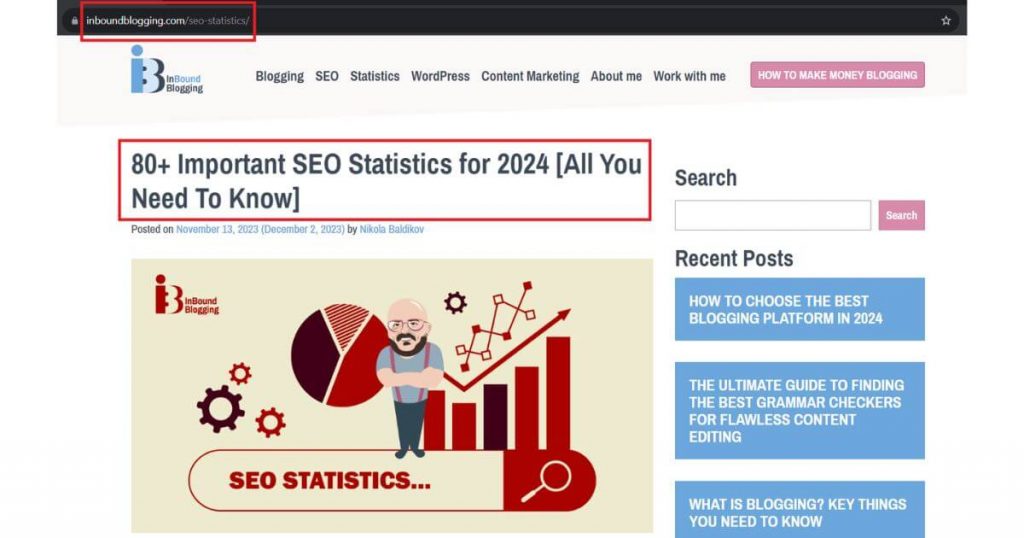Playback speed:
Knowing when to avoid and use stop words in SEO is an important part of any content marketing strategy. Unfortunately, stop words are heavily misunderstood and overlooked by most bloggers.
These terms are a common part of our language. In fact, we used a number of stop words in the title of this blog post, such as “in”, “the”, and “to”. Research shows around 25% of all blog posts are made up of stop words, or terms which aren’t specific or relevant to the post.
We use stop words because they help us compose sentences that make sense. They connect ideas together, and give context to your writing. Unfortunately, they don’t always have the best impact on SEO rankings. This is because stop words in SEO make it harder for Google and other search engines to process the text on your pages.
So, should bloggers and writers avoid stop words entirely? Or do these terms serve a purpose after all? Here’s everything you need to know about SEO stop words.
What are stop words in SEO?
Let’s start by defining stop words in SEO. Essentially, stop words are the terms in a sentence, title, or another part of content which don’t have specific relevance to the topic. They’re the articles, phrases, and prepositions that connect keywords and phrases together. Without them, we’d struggle to create consistently coherent sentences.
Take a look at this blog page:

If we removed stop words from the title completely, we’d end up with something like this:
History Blogging: Blogging Evolved 1994
It doesn’t make much sense, does it?
Common words like “the”, “it”, “an” “for”, and even “how” all fall under the definition of SEO stop words. This means search engines generally ignore these terms completely when scanning your articles and content for relevant information.
What do Common SEO Stop Words Look Like?
Stop words come in many different forms, and appear in virtually all types of writing and content. You’ll even use them in podcasts.
The most common SEO stop words are:
- Articles: Modifiers placed before nouns or noun phrases such as “A”, “An” or “The”.
- Prepositions: Words such as “in”, “on” and “at`’.
- Conjunctions: Terms or phrases which connect sentences like “and” or “therefore”.
- Pronouns: A word that can replace a noun in a sentence such as “she” or “her”.
Here’s an example of an article title with the stop words highlighted:

When your customers or followers search for something online, they may look for the whole phrase, such as “Blogging terms you need to know”, or just a simple couple of words like “Blogging terms”. To streamline the search, Google and other search engines omit the stop words from your title.
However, this doesn’t mean stop words don’t appear in search engine results. Just because Google doesn’t look at the word “in” when ranking content, doesn’t mean it won’t show up in your titles:

Depending on the situation, writers and marketers may choose to omit stop words wherever possible to make their title more search friendly. For instance, the title “Stop words in SEO” is more search-friendly than “What are Stop Words in SEO used for?”. The first example only contains a single stop word, while the second includes 5.
Do SEO stop words affect search engine rankings?
So, how do stop words influence your SEO standing? Well, we know that Google and other search engines don’t look at stop words when ranking your content. This means removing excess stop words from your titles and headlines will generally make it easier for Google to rank and process your piece.
From the perspective of a search engine like Google, stop words extend the time and effort required to understand a piece of text. Avoiding these words saves Google time and reduces the space consumed in its database.
In an ideal world, to appeal directly to Google, you’d fill your title with nothing but relevant, meaningful keywords. However, while this might be beneficial for Google, the practice would make it harder for customers to understand what your titles are about.
Ranking high on Google won’t help much if your titles and content are completely incomprehensible. Excluding keywords means you can’t provide your customers with as much information or context about what a piece is about. For instance, if you removed the stop words from this title:

You’d be left with just “Best Blogging Books Bloggers Read 2024”. This makes sense in our contexts; only the year looks odd. However, if we had the title “Best Books for Bloggers,” it would transform to “Best Books Bloggers” without the stop words. Many consumers would be left unsure whether the content is what they really need. This means you wouldn’t get as many clicks through to your page.
If customers did click on a page and discovered it wasn’t relevant to them based on a confusing title, they’d also be more likely to hit the back button quickly, which increases your bounce rate, and damages SEO performance.
This means using stop words can be an effective way of ensuring you appeal to your human readers, rather than just focusing on search engines.
When to use Stop Words in SEO?
Although Google and search engines might not be big fans of stop words, that doesn’t mean writers should ignore them completely. If you want to make money blogging, attract people to your website, or boost your online credibility, you need to write for human beings.
Stop words may not be relevant to the specific nature of the piece, but they help the reader to understand the content. They also ensure your titles and headings sound professional, balanced, and consistent, rather than as though they were created by robots.
There are even instances where adding stop words alongside keywords can make all the difference to how your content is ranked. Stop words can help companies differentiate between two different topics or concepts. Searching for “Vaccines” on Google would likely bring up a lot of information about medical options for different diseases.

Alternatively, when you add “The” to the front of the word “Vaccines”, you get information about a rock band with that name.

A tiny stop word is all it takes to transform the entire intent of the search, and the nature of what customers want to find when they’re looking online.
When stop words are essential to your keywords, they need to be included to give search engines more context about what you’re actually writing about.
Writing a blog about “Jets New York” would tell Google to rank your post alongside other posts talking about Jets in New York City. Alternatively, writing a post about “The New York Jets” tells search engines you’re writing about a professional football team.
When to Avoid Stop Words
For most writers, bloggers, and content creators, it would be impossible to avoid stop words entirely in all forms of content. Not only would it make your pieces more confusing, but it could also drive away the human readers, who you actually want to engage with your site.
However, there’s a time and a place for stop words. In general, when using stop words in SEO, your focus should be to maintain those words for human readers, and omit them for search engines. This means when you’re structuring and creating a blog post, you would omit stop words in certain parts of your content platform.
SEO Stop Words in Titles
When creating titles for your blogs and articles, it’s worth thinking about how you can reduce the number of stop words in your content, while ensuring it still makes sense. If your titles don’t make sense when you remove certain articles and prepositions, it’s best to leave them be. However, you can always change the order of the words in your titles to remove certain stop words.
For instance, “SEO Stop words in Titles” has fewer stop words than “How to use Stop Words for SEO in Titles”. Removing necessary stop words from your titles will make them appear unprofessional and spammy. As such, it makes sense to worry less about stop words in these cases.
Focus on finding the right balance between detail and clarity. You need to ensure your customers understand what your blog or article is about, without overwhelming them with too many unnecessary terms.
SEO Stop Words in URL Slugs
URL slugs are a different story entirely. The URL slugs on your pages are the small pieces of information added to the end of your URL, after the .com component.
This data is intended specifically for search engines, because most consumers won’t pay a lot of attention to your URLs.

When creating URL slugs, your focus should be on omitting as many stop words as possible, so you’re including only the most relevant information.
In the case of the article above, this means changing the title “Important SEO Statistics for 2024” to just “SEO-Statistics”. While Google won’t necessarily penalise your slugs for having stop words, it does place significant importance on the length of each slug. The longer the length, the lower your content will rank.
Removing stop words is a good way to reduce the length of your URL, while still ensuring you tell search engines which keywords you want to target.
How to Change an URL Slug for SEO
You can change the URL slug on your WordPress blog by logging into your admin portal, and going to the “Post” or “Page” section on the left-hand side of the page. Click on the post you would like to change, and select “Quick Edit”.

Here, you can change the slug in the “Change Slug” field, then click update to apply the new slug to your post. You can also change your URL slug using the editing section on the block version of WordPress, or by clicking “edit” next to your URL underneath the title on the classic editor.
Remember, for URL slugs, all of the keywords included in your title should be connected by dashes (-), as this makes it easier for Google to assess them.
SEO stop words list
The list of SEO stop words you could use in your titles, slugs, and other content is potentially endless. However, there are some stop words which tend to appear more than others. If you’re struggling to keep track of the stop words you use, the following list may help:
- A or An
- About
- Almost
- Actually
- Am
- Although
- Always
- And
- Any
- Are
- As
- At
- Be
- Become or Became
- But
- By
- Can or Could
- Do, Did, or Does
- Either
- Each
- Else
- For
- From
- Had, Has, or Have
- Hence
- I, She, He, or Their
- Is
- It or Its
- May, Might, or Maybe
- Mine, My, or Yours
- Of
- Ok
- Neither or Nor
- Not
- Where, or Wherever
- When or Whenever
- Which
- While
- Who, Whom, Whoever, or Whose
- Why
- Within or Without
- Yes
- You or Your
Using Stop Words in SEO
Stop words in SEO can be a confusing topic to get your head around. Ultimately, search engines don’t appreciate or even pay attention to stop words most of the time. However, that doesn’t mean you should stop using them entirely.
While overusing stop words in the wrong locations, like your slug titles and tags can make it harder for you to rank, not using them at all impacts the user experience for your customers. Whenever you’re writing content online, you should be focused on optimising your posts not just for search engines, but for human beings who want to read your articles or blogs.
When omitting stop words would mean your titles don’t make sense, keep them where they are, unless you’re writing an URL slug, in which case, remove as many stop words as possible.



